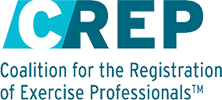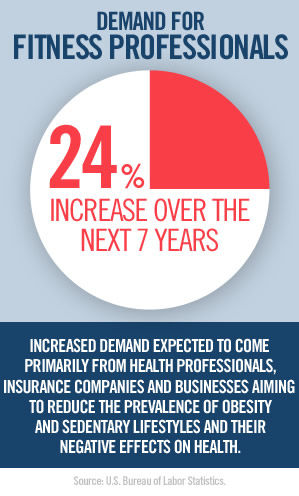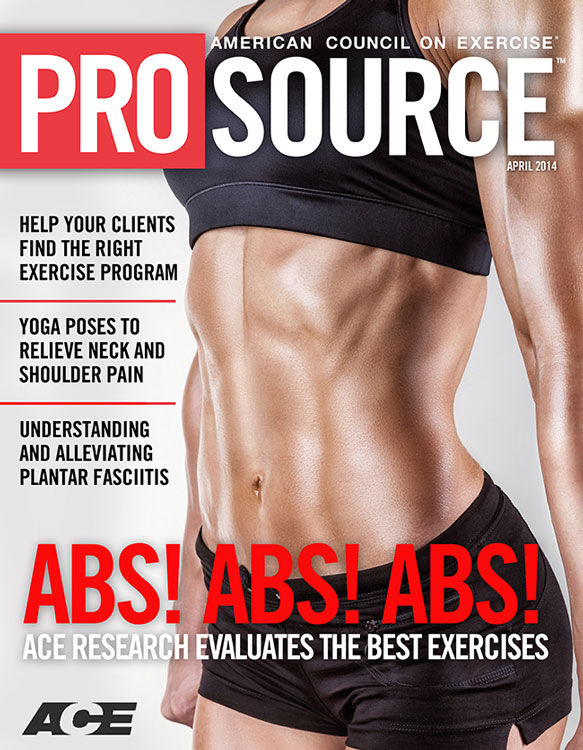Roundtable Discussion: What is the Role of the Qualified Fitness Professional in the Healthcare Continuum?

There is no question that an increasing number of Americans, as well as individuals around the world, would benefit from the guidance and support of a qualified health and fitness professional. As obesity rates continue to rise, the negative health consequences of poor diets and widespread inactivity are challenging the existing healthcare system to increase its preventative care efforts. The American Council on Exercise, along with a broad range of experts and organizations, believe that qualified health and fitness professionals can play an increasingly important role in helping to improve the health and wellbeing of Americans. To that end, ACE is working to evolve the healthcare system so fitness professionals can become part of patient-centered care teams and help far more people become physically active and stay healthy.
The National Coalition for Promoting Physical Activity (NCPPA), which represents a diverse blend of associations, health organizations and private corporations (including ACE), is leading the way by promoting physical activity and fitness, and policies that encourage Americans of all ages to become more physically active. The following discussion highlights the role and value of the well-qualified health and fitness professional to the healthcare team, especially in light of the recent implementation of the Affordable Care Act and increasing emphasis on the primary and secondary prevention recently filed Medicaid rule allows for community health professionals, with a referral from a physician, to be reimbursed for services. This is a critical time to position the health and fitness professional within this conversation.
The following roundtable discussion, which has been edited and condensed, comes from a recent webinar* featuring a physician, a policy director from the American Heart Association, and the owner of a medical-exercise business (see sidebar for complete bios of each participant). In addition to highlighting the substantial body of evidence regarding the role of exercise in the prevention and treatment of numerous diseases, our panel of experts also discusses the qualifications and experience fitness professionals need to be viewed as valued members of the healthcare team. Even as there continues to be a huge disconnect between translating the advice “to be more active” into action, there is a pool of highly qualified exercise professionals who can help. But currently, they are not routinely included in the healthcare team.
 Lisa Coors, M.B.A., AHFS-ACE, CPT-NASM, is owner of Coors Core Fitness (CCF), a medical exercise business based in the Cincinnati area. CCF is one of the leading medical exercise businesses in the Cincinnati area and has become the referral source for numerous physician practices and physical therapy centers. Coors is a national presenter in the fitness industry and has written numerous publications and authored a chapter for the American Council on Exercise’s Advanced Health and Fitness Specialist Manual. In 2012, she started the Women’s Fitness Association as a resource to mentor and educate women in the fitness industry
Lisa Coors, M.B.A., AHFS-ACE, CPT-NASM, is owner of Coors Core Fitness (CCF), a medical exercise business based in the Cincinnati area. CCF is one of the leading medical exercise businesses in the Cincinnati area and has become the referral source for numerous physician practices and physical therapy centers. Coors is a national presenter in the fitness industry and has written numerous publications and authored a chapter for the American Council on Exercise’s Advanced Health and Fitness Specialist Manual. In 2012, she started the Women’s Fitness Association as a resource to mentor and educate women in the fitness industry
 Edward Phillips, M.D., is assistant professor of Physical Medicine and Rehabilitation at Harvard Medical School and dedicates a significant amount of time to building the Institute of Lifestyle Medicine (ILM) and supporting the growing field of Lifestyle Medicine. The ILM is focused on providing educational programs to all health professionals, conducting outcome and field research on the efficacy of Lifestyle Medicine education and programs as well as advocacy to promote physical activity on a national and global level. Phillips is the director of outpatient medical services of the Spaulding Rehabilitation Hospital Network in Boston, assistant physiatrist in the Physical Medicine and Rehabilitation department at Massachusetts General Hospital, and consultant at Brigham and Women’s Hospital. He has consulted on the physical complaints of psychiatric patients at McLean Hospital in Belmont, Mass. for the past 15 years, and is an adjunct scientist at the United States Department of Agriculture’s Jean Mayer Human Nutrition Research Center on Aging at Tufts University. He also serves as a member of the health sector committee of the National Physical Activity Plan and on the Executive Council of the Exercise is Medicine™ global initiative.
Edward Phillips, M.D., is assistant professor of Physical Medicine and Rehabilitation at Harvard Medical School and dedicates a significant amount of time to building the Institute of Lifestyle Medicine (ILM) and supporting the growing field of Lifestyle Medicine. The ILM is focused on providing educational programs to all health professionals, conducting outcome and field research on the efficacy of Lifestyle Medicine education and programs as well as advocacy to promote physical activity on a national and global level. Phillips is the director of outpatient medical services of the Spaulding Rehabilitation Hospital Network in Boston, assistant physiatrist in the Physical Medicine and Rehabilitation department at Massachusetts General Hospital, and consultant at Brigham and Women’s Hospital. He has consulted on the physical complaints of psychiatric patients at McLean Hospital in Belmont, Mass. for the past 15 years, and is an adjunct scientist at the United States Department of Agriculture’s Jean Mayer Human Nutrition Research Center on Aging at Tufts University. He also serves as a member of the health sector committee of the National Physical Activity Plan and on the Executive Council of the Exercise is Medicine™ global initiative.
 Laurie Whitsel, Ph.D.,is the Director of Policy Research for the American Heart Association (AHA), helping to translate science into policy at a national level in the areas of cardiovascular disease and stroke prevention and health promotion. The Association’s policy research department provides policy development and the foundation for AHA’s advocacy work at the national and state level. She has written numerous published policy position statements for the AHA, including several on comprehensive worksite wellness and the use of financial incentives tied to health care plans, as well as legislative briefs, model legislation and the AHA’s strategic policy agenda. She also serves as President of the National Coalition for Promoting Physical Activity (NCPPA), which represents a diverse blend of associations, health organizations, and private corporations and is a leading force in the country promoting physical activity and fitness initiatives, advocating for policies that encourage Americans of all ages to become more physically active. Whitsel speaks at national and regional conferences on policy topics related to nutrition, physical activity, and obesity prevention.
Laurie Whitsel, Ph.D.,is the Director of Policy Research for the American Heart Association (AHA), helping to translate science into policy at a national level in the areas of cardiovascular disease and stroke prevention and health promotion. The Association’s policy research department provides policy development and the foundation for AHA’s advocacy work at the national and state level. She has written numerous published policy position statements for the AHA, including several on comprehensive worksite wellness and the use of financial incentives tied to health care plans, as well as legislative briefs, model legislation and the AHA’s strategic policy agenda. She also serves as President of the National Coalition for Promoting Physical Activity (NCPPA), which represents a diverse blend of associations, health organizations, and private corporations and is a leading force in the country promoting physical activity and fitness initiatives, advocating for policies that encourage Americans of all ages to become more physically active. Whitsel speaks at national and regional conferences on policy topics related to nutrition, physical activity, and obesity prevention.
* Listen to the original webinar in its entirety here.
Lauri Whitsel (LW): Why do you think the appropriately qualified health and fitness professionals deserve a position on the healthcare team?
Edward Phillips (EP): Exercise needs to be included as part of the medical continuum, we need to get our patients moving for all of the huge benefits that they enjoy, the benefit of leading physically active lives. It’s also because they don't teach this in medical school nor do they do a very good job at nursing school and many other health professions. We need to bring in the exercise professionals to the medical team, to expand the curriculum of the medical visit and make it as easy as possible. To be able to prescribe exercise, we have to have the resources for the people to fill the medical prescription the right way.

What Is CREP and How Will It Affect You?
A Letter From ACE CEO Scott Goudeseune
 Part of the responsibility that comes with serving as a thought leader is staying up to date on the changing landscape of our industry. In recent years, that landscape has included more and more discussions within statehouses about the regulation of health and fitness professionals.
Part of the responsibility that comes with serving as a thought leader is staying up to date on the changing landscape of our industry. In recent years, that landscape has included more and more discussions within statehouses about the regulation of health and fitness professionals.
Although a comprehensive law has yet to pass, we need to be a part of the discussion when and if it does. We want to be able to represent you and professionals like you who have demonstrated they have the capacity to safely and effectively lead people to healthy change.
Other like-minded leaders in our industry recognized that opportunity as well, and as a result, we have pulled together to form the Coalition for the Registration of Exercise Professionals (CREP), a nonprofit, 501(c)(6) organization.
Like ACE, organizations including American College of Sports Medicine, National Council on Strength and Fitness, National Strength and Conditioning Association, National Exercise Trainers Association, Pilates Method Alliance and Cooper Institute believe that exercise certification programs accredited by the National Commission for Certifying Agencies (NCCA) represent the best opportunity to advance our profession.
The elected CREP board of directors, composed of individuals representing member organizations, and two nonvoting advisory directors from the Commission for Accreditation of Exercise Sciences (CoAES) and the NCCA will support exercise professionals by:
- Advocating for health and fitness professionals who hold NCCA-accredited certifications on issues that pertain to regulation, access and scope of work
- Seeking recognition as a health provider for professionals who have passed a competency-based fitness certification exam accredited by the NCCA
- Maintaining the United States Registry of Exercise Professionals (USREPS), an internationally recognized registry of exercise professionals who hold NCCA-accredited certifications in the United States
CREP and a place on the U.S. Registry are benefits of holding a current, accredited certification from any member organization, including ACE. We are working on your behalf because we believe the knowledge and skills you possess help people all over the world dramatically improve their lives.
For additional answers to frequently asked questions regarding this important new coalition and how it might affect certification requirements, please visit our website here.
Lisa Coors (LC): A lot of my clients spend more time with me than they do with their physician. When I keep hearing that I ask, "When do you see your doc next?" They respond: "Oh, in six months." So I really think that this relationship, this team approach of the physician, the personal trainer and the patient, is so important.
LW: What types of qualifications and certifications should we be looking for in a health and fitness professional?
LC: The first one is definitely a personal trainer certification, which demonstrates that you have the knowledge and skills to work with the general population. From there, when we get referrals from physicians, it typically requires an advance certification, such as the Advanced Health & Fitness Specialist. When I sat for that exam, I had to memorize medications, contraindications to different conditions and diseases. And I use those skills every single day with every single client I work with. We have a population that is injured, who has chronic illness, who's obese and that’s the skill set that the trainer needs. Now there are other important skills that trainers need like business skills, professional skills, the ability to communicate their knowledge.
I did a presentation in front of a group of physical therapists and I asked, “Do you refer to trainers for post-rehab? So once they’re done with physical therapy, who do you send them to?" One lady raised her hand and said, “You're the reason we have patients…you all break people.” She backtracked a bit after that, but that’s the muscle-head mentality that is still out there. Can the muscle-head mentality be great? Yes, if you're a bodybuilder, it’s wonderful, but for the population we have right now, the people who need to be in our fitness centers, it is not. In fact, I think this muscle-head mentality has kind of ruined it for fitness professionals who really, really know what we're doing. It’s definitely a barrier to us as fitness professionals, so the question comes, what skills do we need to work on? As a mentor, two big problems I see are a lack of organizational skills—trainers who can keep their appointments together—and just being able to speak to people effectively.
LW: What are some of the most significant barriers to fitness professionals becoming recognized and accepted as members of the healthcare team?
LC: Besides overcoming the muscle-head mentality that is still out there, I think that we really need to dive into the issue of professionalism. As fitness professionals, we have to demonstrate that we know what we’re doing by attending professional events and meeting the physicians and giving presentations whenever possible. We have to start doing what other industries do. If you are in any other type of industry, you have to network and I think getting us out of the gym and into professional environments is critical to break the barriers.
LW: Are there other things that professional organizations and societies that represent health and fitness professionals can do to help them gain recognition and become a member of the healthcare team?
EP: On a broader scale, licensing would be wonderful, and moving beyond the limitations that come with a personal trainer who’s got a wonderful reputation, but people still have the negative stereotypes that Lisa described. I think being able to work within the medical system, if that's where you want to get the referrals from, and then working hard to meet the expectations of the medical group or hospital. If you're talking about professional organizations like ACE or ACSM, there's a world of things that is done by all the reviews and the academics that go on. [Note: See sidebar to learn more about how organizations, including ACE, are joining forces to elevate the fitness profession by forming the Coalition for the Registration of Exercise Professionals (CREP).]
LC: One thing a lot of trainers wonder about is how they can connect with physicians. My answer is that when you have your clients fill out paperwork, one of those items is a medical release, which goes to the client's physician. That is your first connection with the doctor and it's a great communication starter. I cannot emphasize enough how important this first point of communication is between physicians and trainers.

EP: So to Lisa's point, the day is arriving, thankfully, when physicians are going to be increasingly paid, not on a fee for services basis but on the outcomes of the health comes out on the behaviors of their patients. This is where the fitness professional fits in and to complete the circle you're going to have to report back something and getting it to the back door of, in a hip or compliant manner that would change the game, If you're able to do that.
LW: What education should be required of health care professionals, the qualified personal trainer? A bachelor's degree? More than a bachelor's degree?
LC: That's a tough question. This can go one of two ways, it's absolutely important to me as a business owner hiring trainers, that a trainer have a 4-year college degree in some sort of science, plus a certification. Interestingly, my biggest problem is the super educated trainer with a master’s or doctorate degree in physiology who can’t talk to people. So, I’ve actually had people with four-year degrees in arts, like some sort of artistic dance, became a certified personal trainer and I mentor them in the technical skills. Did they have the people and professional skills? Absolutely. And doctors love them, because they know their stuff. So this is a real tough question.
EP: I think the main requirement I want is someone who admits what they don’t know. I hold this standard to my physician colleagues as well. Do what you do, know what you know and tell us what you don't know. So I don’t have a strong opinion on whether or not they should have a master's degree or a bachelor’s degree. Hopefully, the qualified person has a sense when something is not right, when the patient is not doing well, and won’t just push them through some chest pain or something crazy like that.
LW: Under the Affordable Care Act, companies are going to be able to provide incentives to their employees on health metrics, within the health care plan. Is there a role for the health and fitness professional to be a referral from the employer for those companies and organizations that want to encourage their employees to be physically active and tie that to their health insurance costs?
EP: One of the things that I get really excited about is the idea of turning work sites into places where you can remain active throughout the day. When I give lectures about this, people get really excited about the idea of having treadmill desks available—not just privately, but in a shared workspace. And I always get a strong audience reaction when I show pictures of The New York Times and other forward-thinking companies that have four treadmill desks facing each other. The idea of having an exercise professional actually organize walking meetings, which you can do indoor or out, or have employees use a treadmill desk or a bike desk—these things are all very exciting and could lead to happier employees. I think you get immediate benefits from remaining active through the day.
LW: How can fitness professionals work with doctors and the insurance industry to help pay for the training and not just the membership to the gym?
EP: The world is changing and, with the Affordable Care Act, large organizations are taking on risks for their patients. Collectively, we need to keep on making the argument that keeping your employees active is going to be cost-effective (which the research supports) and once we make that argument then it becomes more enticing financially for large organization to hire exercise and fitness professionals. There’s definitely a new rise of consumerism in health care as people look for ways to lower their costs. I think there are going to be more opportunities for appropriately priced exercise professionals to provide services.
LC: We do post-rehab and I’ve had several clients referred to me from our local orthopedic center, where their insurance ran out. So, instead of paying $120 per hour out of pocket for their physical therapist, they’d rather pay me $80 per hour and get the fitness piece. Of course, I have the physical therapist and physicians sign off on the medical release, but our business is doing so well because, honestly, we are reasonably priced. It’s also valuably priced for our skill set. But remember, if you are trainer, you have to make sure you have those medical releases first before you touch that person.
More Articles
- ProSource™: April 2014
Abs! Abs! Abs!
- ProSource™: April 2014
Understanding and Alleviating Plantar Fasciitis
Health and Fitness Expert
- ProSource™: April 2014
Sugar Shock: Why Experts Say It's Time to Get Serious About Taming That Sweet Tooth
Contributor
- ProSource™: April 2014
Help Your Program-hopping Clients Find an Exercise Program That Works
Health and Fitness Expert






